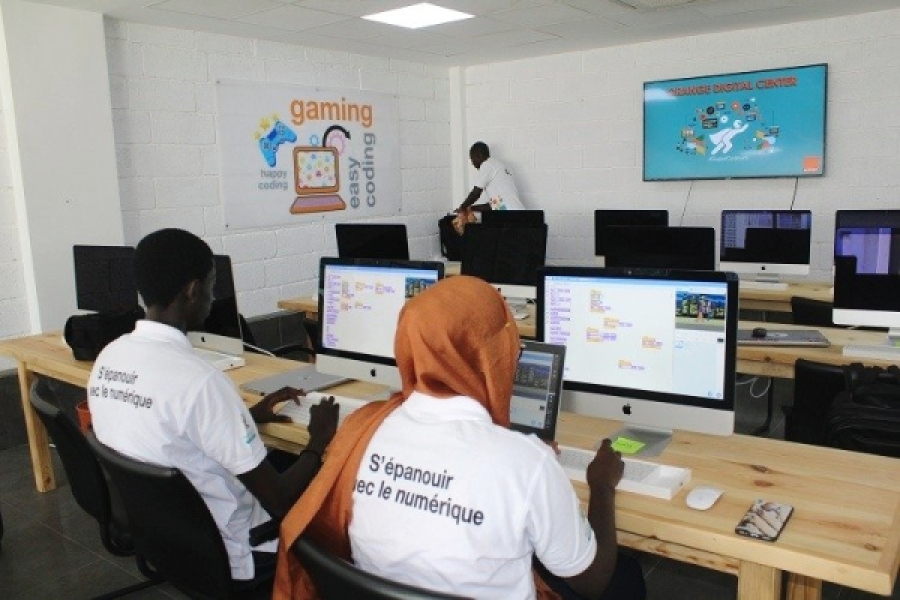WEST AFRICA CIVIC SPACE INDEX
Dashboard
Welcome to the West Africa Civic Space Index
- Advocacy & Action Hub for CSOs
- Best Practices
- Regional Analysis
- Recommendations for Stakeholders
- About
- Methodology
- Indicators
-
Get Involved
-
How it Works
-
Nigeria : Telecom Companies Under Scrutiny for Potential Internet Restrictions Ahead of Upcoming Protests

-
Senegal: New Digital Services Levy Starts July 1st

-
Kazakhstan, Togo sign partnership agreements for DPI development

To submit a best practice, please send us details at
Our team will review and select submissions to feature on the CiviConnect platform as part of the growing database of civil society best practices in West Africa. Let's learn from each other's successes!
More News & Stories
About the West Africa Civic Space Index
Our Methodology
The West Africa Civic Space Index was developed with a robust methodology and data collection strategy to comprehensively assess the state of civic space across ten countries covered by the initiative. The methodology relied on a multi-faceted approach, utilizing a variety of tools to capture the state of civic space in the region. These tools included surveys and questionnaires, interviews, document analysis, crowdsourcing and open-source data, and social media analytics.
Surveys and questionnaires were utilized to engage various stakeholders, including civil society organizations, activists, academics, and the press to gather quantitative data on key indicators related to civic space. This approach allowed for the systematic collection of structured data, providing insights into the perceptions and experiences of individuals and organizations operating within the civic space.
Interviews with experts, activists, academics, and other stakeholders provided valuable qualitative insights and perspectives, enriching the understanding of the state of civic space in the region. These interviews facilitated in-depth discussions and the collection of qualitative data, offering nuanced perspectives on the challenges and opportunities within the civic space landscape.
Document analysis involved the review of key legal documents, policies, reports, and news articles to gather relevant information, especially concerning laws, regulations and latest developments affecting civic space. This method allowed for a comprehensive analysis of the legal framework and its impact on civic freedoms, providing a deeper understanding of the regulatory environment within which civil society operates.
Crowdsourcing and open-source data were leveraged to access and aggregate existing data relevant to the indicators. This included data from human rights organizations, research institutions, government reports, and other already available in the public domain ensuring a comprehensive and diverse dataset for analysis.
Social media analytics provided real-time insights into public discourse and complemented the understanding of civic space dynamics in the digital sphere. By monitoring trends, discussions, sentiments, and data related to the indicators on social media platforms, the project gained valuable insights into the evolving public discourse and its implications for civic space.
The comprehensive approach to data collection ensured that both quantitative and qualitative data on key indicators related to civic space were captured. This multi-faceted strategy allowed for a holistic understanding of the state of civic space in the West African region, providing valuable insights into the challenges and opportunities faced by civil society organizations, activists, and ordinary citizens.
The indicators
The data collection methodology previously mentioned is built on the foundation of 12 carefully selected indicators, each comprising specific component measures and constituent factors. The selection of the indicators was informed by the need to capture the diverse dimensions of civic space, including freedom of association, freedom of peaceful assembly, freedom of expression, and the state duty to protect.
The 12 indicators included in the West Africa Civic Space Index are as follows:
Country Assessments
The detailed assessments tailored for each country within the West Africa Civic Space Index with an in-depth and nuanced understanding of the dynamic landscape of civic space.
Benin
The insights gleaned from interviews, surveys, and diverse datasets provide a nuanced perspective on the state of civic space in Benin. Despite evident progress, challenges persist across multiple indicators. Analysis indicators reveals ongoing restrictions, particularly in areas such as freedom of assembly, expression, association, rule of law, and human rights protections.
Burkina Faso
Burkina Faso grapples with significant challenges in its civic space, despite pockets of progress in recent years. The analysis, informed by data from interviews, surveys, and various sources, underscores major restrictions on fundamental dimensions such as freedom of assembly, expression, association, rule of law, and human rights protections. This paints a stark picture of obstacles impeding the realization of civic freedoms.
Ghana
Ghana stands out as one of the more stable democracies in West Africa, boasting a history of peaceful power transitions and a commitment to civil liberties. However, data from interviews, surveys, and other sources signal persistent challenges in civic space.
Guinea
Guinea is a West African nation that has faced political instability and authoritarian rule for much of its history since independence in 1958. The country has experienced two military coups since 2020, further destabilizing its politics. In September 2021, a military junta seized power from President Alpha Condé, who had been controversially elected to a third term in office amid violent protests. The coup leaders dissolved the government, suspended the constitution. Civic space and human rights protections, already strained, faced exacerbated challenges in this tumultuous environment.
Ivory Coast
Insights from interviews and data unveil that Ivory Coast's civic space encounters some constraints, although advancements have unfolded since the resolution of the political crisis in 2011. Evaluation of 12 vital indicators suggests that Ivory Coast's civic landscape can be labelled as "challenged," exhibiting impediments to freedoms alongside prospects for heightened engagement.
Liberia
Liberia has navigated strides in rebuilding civic space since the cessation of its civil wars in 2003, yet interviews and surveys signal substantial persisting challenges.
Assessment based the indicators portrays Liberia's civic space as "challenged," embodying hurdles to freedoms alongside potential avenues for heightened engagement.
Mali
Mali has faced significant instability and conflict over the past decade, taking a toll on civic space and human rights. Responses from interviews and data indicate Mali's civic space is highly restricted.
Nigeria
Nigeria, the economic and demographic giant of Africa, grapples with formidable challenges in realizing an open civic space, as revealed through interviews and surveys. A detailed examination of the key indicators delineates Nigeria's civic space as " Constricted," marked by severe constraints on the freedoms of assembly, expression, association, and political participation.
Senegal
Senegal, acknowledged as one of West Africa's enduring democracies with a history of peaceful power transitions since gaining independence in 1960, confronts persistent challenges in its civic space, as illuminated by responses from interviews and surveys.
Togo
Responses from interviews and surveys indicate that civic space in Togo faces severe restrictions and can be characterized as " Constricted ".